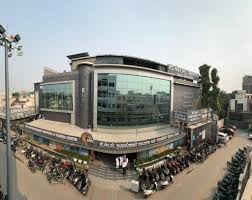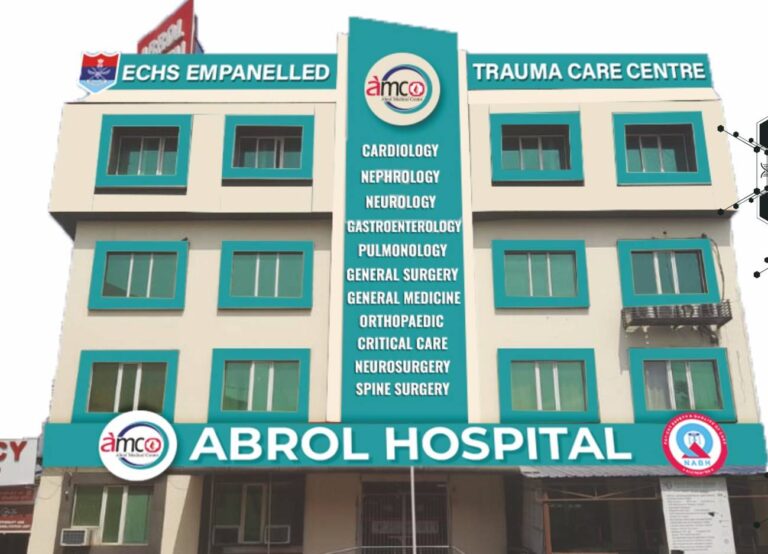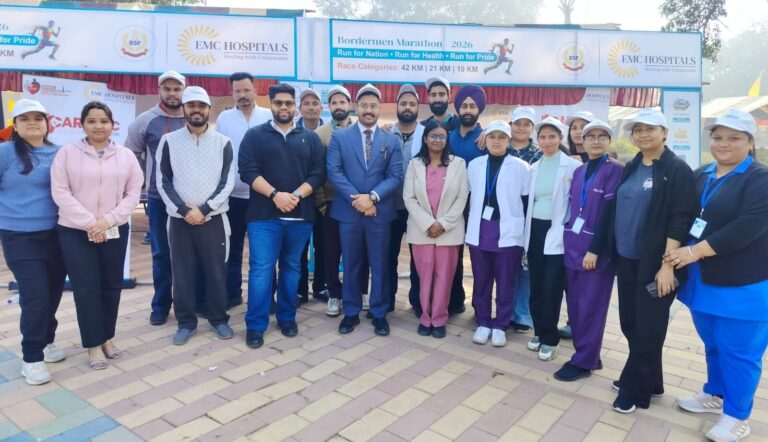Postpartum Depression Is Not a Weakness, It’s a Medical Condition That Needs Understanding and Timely Treatment: Punj Artemis Hospital, Amritsar (A Unit of EMC Hospitals)

Amritsar: Dr. Monica Punj, Senior Consultant in Obstetrics and Gynecology at Punj Artemis Hospital, Amritsar (a unit of EMC Hospitals), has brought attention to a serious and often overlooked issue concerning the mental health of new mothers — Postpartum Depression (PPD).
Dr. Punj explains that postpartum depression is more than just routine “baby blues” or mood swings — it is a serious mental health disorder that can severely affect a new mother’s emotional well-being. It typically sets in after childbirth when a woman may begin to feel intensely fatigued, sad, overwhelmed, or even helpless. While many dismiss these feelings as normal hormonal changes, Dr. Punj emphasizes that PPD requires clinical attention and compassionate care.
When a woman gives birth, she undergoes significant hormonal shifts, experiences sleep deprivation, faces a sudden increase in responsibilities, and encounters social pressures — all of which can contribute to emotional instability. Many women don’t understand these feelings and believe they are alone in their struggle. However, statistics show that one in every five women in India suffers from some form of postpartum depression.
Symptoms may include persistent sadness, fatigue, irritability, guilt, detachment from the baby, and in severe cases, even suicidal thoughts. Dr. Punj stresses that this condition affects not just the mother but also the newborn, as a mother struggling with mental health may be unable to care for her baby effectively, impacting the child’s development, safety, and well-being.
Recognizing the gravity of this issue, Punj Artemis Hospital, Amritsar has launched dedicated mental health services for new mothers. The hospital offers a supportive environment with experienced doctors and counselors who provide emotional support, regular assessments, and special assistance programs tailored for postpartum care. The hospital’s objective is clear — no mother should feel alone during this vulnerable phase.
Dr. Monica Punj appeals to families and society to observe behavioral changes in new mothers carefully. If a mother seems withdrawn, unusually quiet, uninterested in her child, or visibly depressed, she must not be judged or ignored. Instead, families should support her and seek medical guidance without delay. A mother’s mental health is vital for the entire family’s well-being — when the mother is healthy, the child thrives.
Dr. Punj’s clear message is:
“Postpartum depression is not a sign of weakness; it is a medical condition. Understanding it and seeking timely treatment is essential.”
For further information or support, families can consult Dr. Monica Punj at Punj Artemis Hospital, Amritsar (a unit of EMC Hospitals).




